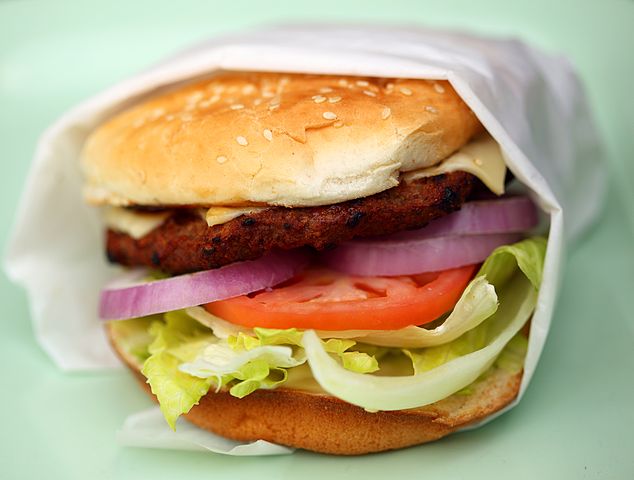aNewDomain — Why wouldn’t a cow have feelings?
One of my fathers-in-law refers to cows as Hamburger-on-the-Hoof, a play on corn-on-the-cob. I always cringe a little inside when I hear that. There’s no animal equivalent of dehumanizing, because animals aren’t demonstrably human, but I cringe nonetheless.
Every war we get into, we have to dehumanize our enemies. People don’t like shooting and killing one another, we really don’t. The aberrations make the news and convince us otherwise, but people are quite peaceful, empathetic. That’s because, given a choice, most of us have a hard time killing another human being. So we have a variety of names available that allows us to dehumanize our enemies, Charlie and Kraut being possibly the least offensive of these.
Given a choice, most people would also have quite a hard time killing an animal. Or eating one.
How would your hamburger taste if you had a personal relationship with the animals that donated the meat? Could you eat your family dog, even if you thought you had to?
Eating animals, the idea and the fact of it, is a complicated affair.
Wine, candlelight and camel eyeballs
We draw a line between animals that we keep as pets and animals we keep as meat. We stereotype non-Americans sometimes as dog eaters, something that makes our hearts quail.
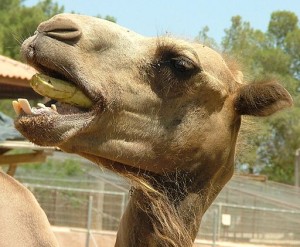 Some folks eat the same animals that they ride – desert nomads might offer you the camel’s eyeballs if you are the honored guest at their dinner. Necessity drives this nonchalance. There just isn’t that much else to eat in the Gobi.
Some folks eat the same animals that they ride – desert nomads might offer you the camel’s eyeballs if you are the honored guest at their dinner. Necessity drives this nonchalance. There just isn’t that much else to eat in the Gobi.
Remember a big scandal about horsemeat being sold as beef? Americans reacted viscerally even though “contaminated” beef never reached U.S. markets. We revere horses. We race them, breed them, use them in therapy and use them to sell beer. Eating them seems disgusting, a betrayal.
Horses, now, really have so much in common with cows it is hard for a non-biologist to really very clearly list the differences. During some times in my diverse upbringing, I lived rurally, with both horses and cows around my houses and schools. I’ve touched them, walked with them and I’ve run alongside them. The cows were, admittedly, easier to keep up with). I watched them play and love. I fed each one out of my hands.
Herd cows have been bred for their docility, horses for their work ethic. There are minor differences in personality. But they do have personalities. Does this imply personhood? We’d tend to say yes for horses and no for cows. Why? Because we plan on eating those cows.
It turns out that we have more in common with other mammals than is strictly comfortable. Here’s a bit on PBS about what animals are really thinking.
And if you have a few minutes, this TED talk will do the trick.
We have a ton in common with all other mammals, too.
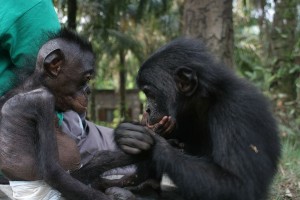 From Bonobo chimpanzees to elephants, voles to lab rats, we all have certain basic things in common — an implicit sense of fairness, a need for physical closeness, the ability to be affectionate, a crazy need for hygiene. We’re all the same on so many obvious dimensions.
From Bonobo chimpanzees to elephants, voles to lab rats, we all have certain basic things in common — an implicit sense of fairness, a need for physical closeness, the ability to be affectionate, a crazy need for hygiene. We’re all the same on so many obvious dimensions.
And whatever it is we think separates us from animals, like language, it’s easy to find examples that contradict the notion. Certain dolphins have about the same brain to body mass ratio as us.
Take groundhogs. They use language to delineate threats in their environment and great apes can learn hundreds of words.
Elephants, apes, and some birds can recognize themselves in mirrors.
Mammals understand the fundamental underpinnings of morality. So many mammals grieve their dead — so many that it doesn’t bear listing them here. Elephants and dogs experience post-traumatic stress.
Why I’m not a vegetarian
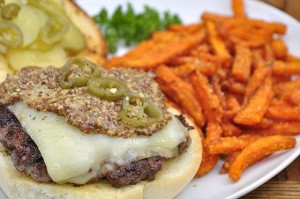 I’m not a vegetarian. I was a vegetarian in college, more to impress a girl than really out of conviction. But it made me really sick.
I’m not a vegetarian. I was a vegetarian in college, more to impress a girl than really out of conviction. But it made me really sick.
As in blood pouring out of my bodily orifices sick.
I love cows but I’m still going to eat them. I just don’t have the guts to die for conviction, at least not this conviction.
But I can’t and won’t dismiss them as being just Hamburgers on the Hoof.
Now you know people who experience autism often have obscure, narrow interests, weird obsessions. But I’m not full-on obsessed with burgers, though eating one does something for me that I can’t fully describe to you. When I take a bite it’s like my eyes roll up into my head, like a shark biting a surfboard.
Burgers make me groan from inside like a dog getting belly rubs in just the right spot. I think about burgers during mental downtimes. And I order them in restaurants when I should probably, as a matter of form, eat something more sophisticated.
Yet it is possible to eat meat with a reverence for the animal life destroyed to continue our own. It’s possile to eat meat without dismissing food-farmed animals as mere objects or as mindless, soulless and unfeeling barely concious automatons to be slaughtered indecorously.
Butchering with reverence
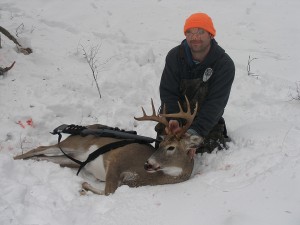 Some of my friends hunt. I used to object to hunting on principle. There just isn’t a need for it in the modern world. But if you’re going to eat meat, I don’t think you can decry the activity of harvesting that meat – of looking the animal in the eye, ending its life, and then butchering it with awe, reverence and gratitude. I must make the right kinds of friends, because that is how they describe the hunt.
Some of my friends hunt. I used to object to hunting on principle. There just isn’t a need for it in the modern world. But if you’re going to eat meat, I don’t think you can decry the activity of harvesting that meat – of looking the animal in the eye, ending its life, and then butchering it with awe, reverence and gratitude. I must make the right kinds of friends, because that is how they describe the hunt.
This is part of what is meant by the lines “If you want to live you have to eat. And as long as you are going to eat, you might as well eat well.” These lines show up about halfway through the movie Departures, a Japanese offering about life, death, grief and ritual. One theme in the film is that the characters are continually eating and thus affirming their life, at one point tossing chicken bones one by one into a bowl on the table.
The bones form a grizzly affirmation of life. Eating is living.
We can’t avoid harm as we live. Your very existence snuffs out the existences of countless other life forms and you can’t help that. And if you can be vegan or vegetarian, congratulations. You can grow muscle as a vegan. I commend you. But so long as we are eating meat, the rest of us, we can find an affirmation of life in the knowledge of death.
That other animals die — animals that, like us, love their children and fear the end — that they die to continue our existence or even merely our pleasure in our existence is something to be mindful of.
It isn’t the eating of animals that makes us monstrous. It is our derision of them.
For aNewDomain, I’m Jason Dias.
Cover image credit: “Cheeseburger With Lettuce, Tomato and Onion free creative commons (4006382370)” by Pink Sherbet Photography from USA – Cheeseburger With Lettuce, Tomato and Onion free creative commons. Licensed under CC BY 2.0 via Wikimedia Commons.
Burger image credit:“Cheeseburger with creole mustard and sweet potato fries” by jeffreyw – Mmm… Creole mustardUploaded by Fæ. Licensed under CC BY 2.0 via Wikimedia Commons.
Butcher shop image credt: “Butcher in Morocco” by Donar Reiskoffer. Licensed under CC BY-SA 3.0 via Wikimedia Commons.
Camel image credit: by SuperJew (Own work) [CC BY-SA 3.0], via Wikimedia Commons
Hunter with buck image credit: by MJCdetroit (Own work) [CC BY-SA 3.0 or GFDL], via Wikimedia Commons

